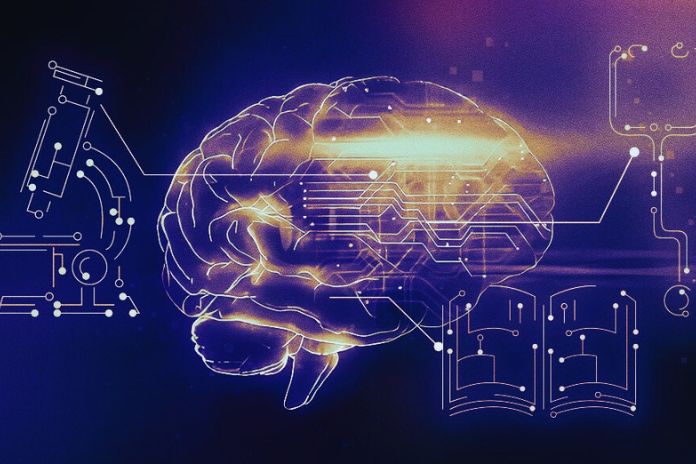Artificial intelligence (AI) is undoubtedly one of the most significant technological advances of our time. It is transforming many areas, from healthcare to finance, and education is no exception. The fusion of innovative training with AI opens up new horizons, promising more personalized, effective, and engaging learning experiences.
AI For Increased Personalization
Each learner is unique, with their own needs, preferences, and learning pace. AI, through its analysis and prediction capabilities, can adapt training content in real-time, providing a truly tailored experience. Imagine a course that evolves based on the learner’s responses, interactions, and even emotions. This is the promise of AI.
Virtual Assistants To Guide Learning
Chatbots and other virtual assistants powered by AI can act as tutors, answering learners’ questions, offering additional resources, or suggesting suitable exercises. These assistants are available 24/7, ensuring constant support.
Predictive Analysis To Anticipate Needs
Thanks to AI, it is possible to analyze the behavior and performance of learners to anticipate their needs. If a learner appears to be struggling with a particular concept, the AI can automatically suggest additional resources or exercises to reinforce their understanding.
Augmented And Virtual Reality Powered By AI
AI can enrich virtual or augmented reality experiences, making simulations and scenarios even more realistic and adaptive. Imagine medical training where AI adjusts the simulation based on the learner’s actions, providing a dynamic learning environment.
AI To Evaluate And Improve
Beyond the training itself, AI can also be used to evaluate the effectiveness of training programs. By analyzing data, AI can identify the strengths and weaknesses of a program, suggesting improvements and thus optimizing the training offering.
Ethical And Practical Challenges
Of course, integrating AI into training has its challenges. Questions of confidentiality, ethics, and fairness arise. It is essential to ensure that AI is used responsibly, ensuring that all learners benefit from its benefits without being disadvantaged or discriminated against.
What Are The Current Educational Innovations?
Education, like many other fields, is constantly evolving. Today’s educational innovations are shaping the way we learn, teach, and interact in the academic environment. These cutting-edge methods offer new perspectives, challenge established norms, and pave the way for more enriching learning experiences. Let’s take a closer look at some of these landmark innovations.
Productive Failure
The idea behind this approach is simple but powerful: learn from your mistakes. Instead of seeing failure as an obstacle, it is seen as a learning opportunity. Learners are encouraged to experiment, take risks, and learn from mistakes. This approach builds resilience, critical thinking, and the ability to adapt to unforeseen situations.
Design Thinking
Learner-centered design thinking is an approach that encourages creativity, collaboration, and empathy. It’s about understanding learners’ needs, defining problems clearly, and designing innovative solutions. This method is particularly effective for solving complex issues and developing critical thinking skills.
Formative Analysis
Formative analysis goes beyond the simple assessment of knowledge. It aims to understand where learners are in their learning journey, identify areas for improvement, and provide constructive feedback to guide the next steps.
Media Learning
In the digital age, media plays a crucial role in training. Whether it’s videos, podcasts, or social media, media offers engaging and interactive ways to convey information. They also allow learners to consume content at their own pace, revisit concepts, and strengthen their understanding.
Project-Based Learning
Rather than focusing on memorizing facts or concepts, this approach emphasizes application. Learners work on real-world projects, collaborating with their peers, researching solutions, and presenting their results. This not only strengthens understanding of the subject but also develops skills such as communication, collaboration, and problem-solving.
Immersive Learning
With the advent of technologies such as virtual and augmented reality, immersive learning has become a reality. Learners can immerse themselves in virtual environments, explore worlds, interact with objects, and experience learning like never before.
Micro-Training
In our fast-paced world, it is only sometimes possible to dedicate long hours to training. Micro-training offers short, focused, and easily digestible learning modules. These “bites” of information can be consumed at any time, providing maximum flexibility for learners.
Adaptive Learning
In a world where every learner is unique, adaptive learning offers a personalized solution. Using advanced algorithms and real-time analytics, adaptive learning platforms adjust content based on each learner’s needs, preferences, and performance. This ensures that each individual receives the right content at the right time, thereby optimizing learning outcomes.
Inquiry-Based Learning
Rather than simply receiving information, learners are encouraged to ask questions, investigate, and discover for themselves. This active approach strengthens curiosity, critical thinking, and the ability to seek and evaluate information independently.
Peer-To-Peer Training
Learning doesn’t just happen through a trainer or teacher. Peers can also play a crucial role. Peer-to-peer training encourages learners to teach and learn from each other, thereby strengthening mutual understanding and collaboration.
Also Read: Artificial Intelligence In Email Marketing – High Performance Impact

